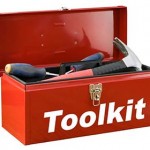You probably take life very seriously if you’re depressed. It’s probably the result of neurochemistry gone awry and a particularly dark and pessimistic take on reality that makes you feel helpless and hopeless.
Getting pleasure out of life, playing and fun are often lost in depression’s onslaught.
When not depressed, I have a goofy sense of humor that bursts forth without warning: just ask my family! I also love to laugh at unabashedly juvenile movies – – Blazing Saddles and Anchorman, come to mind. But when depressed? I can’t muster a simple smile, my face locked in a type of grim sadness. In fact, it seems at such times as if everyone else is effortlessly enjoying life – – except me. And that feels pretty lonely.
I can also get pretty angry. I feel that depression is cheating me out of the sweetness of life that everyone has a right to: the ability to enjoy myself.
Richard O’Connor, Ph.D. writes that the cause of our loss of joy and laughter when depressed emanates from a damaged sense of self:
“Depression is a loss of parts of the self. Instead of experiencing our inner selves as strong, vital, and joyful, we see ourselves as weak, damaged, or blameworthy. We wish that others could make us feel better, but we can’t usually express such wishes directly; instead we use various self-defeating defense mechanisms to keep our wishes out of consciousness. Play is essential to nurturing the self. The depressive, trying to hide from his own punitive ego like Adam from a wrathful Jehovah, feels that he’d better never let his guard down, always be busy, and always be productive. But play changes moods. Play can lift depression.”
But just how do we go about starting to play? Here’s Dr. O’Connor’s take on what play is and how to partake in it:
1. Play is usually physical. Our bodies are engaged. We move, we use our large muscles, we can sweat.
2. Play often involves a conscious abandonment of dignity, sometimes by putting us into roles or positions that are outside our usual behavior.
3. Play usually involves others. Solitary play is okay if there is no one available, but it’s more fun with other people.
4. Play involves being spontaneous, doing what our impulses tell us. This may require planning. Games have rules to keep our spontaneity in safe limits. Spontaneity helps us lose self-consciousness, which seems to be a major point of play.”
Grownups like you and I all too often dismiss having fun as a remedy for depression. In my experience, this is a big mistake. It should be part of everyone’s depression toolkit. It dismissive attitude is rooted in the negative, ruminative thinking that goes in our heads before even trying to participate in play. Dr. Hara Estroff Marano talks writes about the value of play:
“As welcome and wonderful as those feelings generated by play are, it’s value among adults is too often vastly underrated. We would all agree that play lifts stress from us. It refreshes us and recharges us. It restores our optimism. It changes our perspective, stimulating creativity. It renews our ability to accomplish the work of the world. By anyone’s reckoning, those are remarkably worthy achievements.”
Once you’ve jumped in feet first, the flow of pleasurable experiences takes over and the benefits sink in.
Is play missing from your daily round?
Don’t let your depression squash all the joy out of your life. Go play and have fun!
Copyright, Daniel T. Lukasik, 2015












